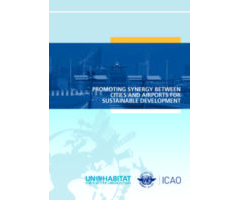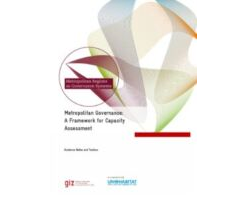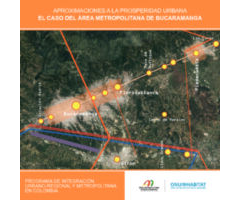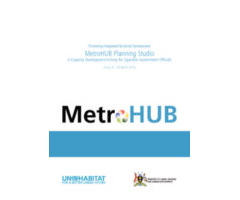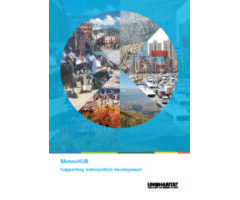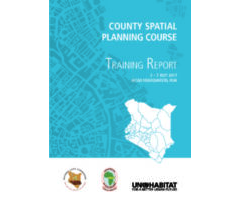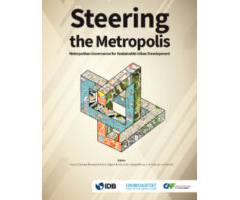Metropolitan Management

Cities and urban dynamics are evolving rapidly around the world. Between 2000 and 2015, cities grew by 1.5% a year in terms of area (EC OECD, 2020). Due to that expansion, many cities have grown beyond the boundaries of their central municipality configuring bigger and denser metropolises, understood as the city and its commuting zone, which consists of suburban, periurban and rural areas economically and socially linked to the city.
Metropolises of the 21st century are characterized for having strong interdependencies from economic, social, and environmental perspectives which need to be managed in an integrated way, based on functional territories and across both jurisdictional boundaries and the urban-rural continuum. UN-Habitat integrative approach for metropolitan management involves local, sub-national and national governments participation in metropolitan governance, metropolitan policies and legislation, metropolitan planning, and metropolitan finance and economics.

UN-Habitat has established the MetroHUB initiative for supporting sustainable development in world’s metropolises and regions, by tailoring innovative metropolitan solutions to local contexts and informing metropolises’ decision-making processes with latest research and data. UN-Habitat work on metropolitan and regional management includes: capacity development of metropolitan and regional authorities; formulation of metropolitan sectoral policies; drafting and improvement of metropolitan legal frameworks; strengthening of supramunicipal governance schemes; designing metropolitan and regional planning instruments; and innovating on financing mechanisms at metropolitan and regional scales.
Specific objectives of the MetroHUB initiative are: i) Developing and sharing information as well as enhancing capacity development and learning; ii) Establishing a strong partnership with relevant networks and creation of a platform for linking several networks; iii) Developing and gathering practical tools and cases studies, with special reference to policies, legislation, governance, planning and finance aspects: iv) Building up a dialogue among diverse actors such as professionals, civil servants, academia, civil society and private sector; v) Promoting a shared vision and consensus on crucial projects for metropolitan development; and vi) Fostering vertical and horizontal collaboration to improve metropolitan development and ensure a participatory approach for decision making by including civil society and especially vulnerable groups such as women, youth and disabled.
Services provided by MetroHUB, namely trainings, field visits, technical assistance, normative support, knowledge exchange, studies, among other, have diverse scopes and time frames according with counterparts and beneficiaries needs and requirements. These services have already been applied, among others, in the following regions and countries:
This concept note is a joint initiative of ICAO and UN-Habitat to: Identify global good practices and…
Published On 1 June 2018
Downloads 35
Views 212
The Strategy as a mean of transportation for Bucaramanga and its Metropolitan Area was born in 2015,…
Published On 1 June 2018
Downloads 75
Views 251
Other Documents
Metropolitan Governance Framework Capacity Assessment (French)
@media screen…
Published On 1 June 2018
Downloads 167
Views 455
En 1981 el Área Metropolitana de Bucaramanga (AMB) fue creada por mutuo acuerdo entre Bucaramanga, Floridablanca…
Published On 1 June 2018
Downloads 361
Views 130
The MetroHUB Planning Studio in Arua, Uganda (20 – 22 March 2018) – a pilot capacity development activity…
Published On 1 June 2018
Downloads 15
Views 196
The MetroHUB is an integrated approach for supporting metropolitan areas and systems of cities towards…
Published On 1 June 2018
Downloads 52
Views 484
Land is inelastic yet has many competing uses which in some cases are in conflict. To achieve organized,…
Published On 1 June 2017
Downloads 17
Views 167
A distinctive feature of urbanization in the last 50 years is the expansion of urban populations and…
Published On 1 June 2017
Downloads 34
Views 168


